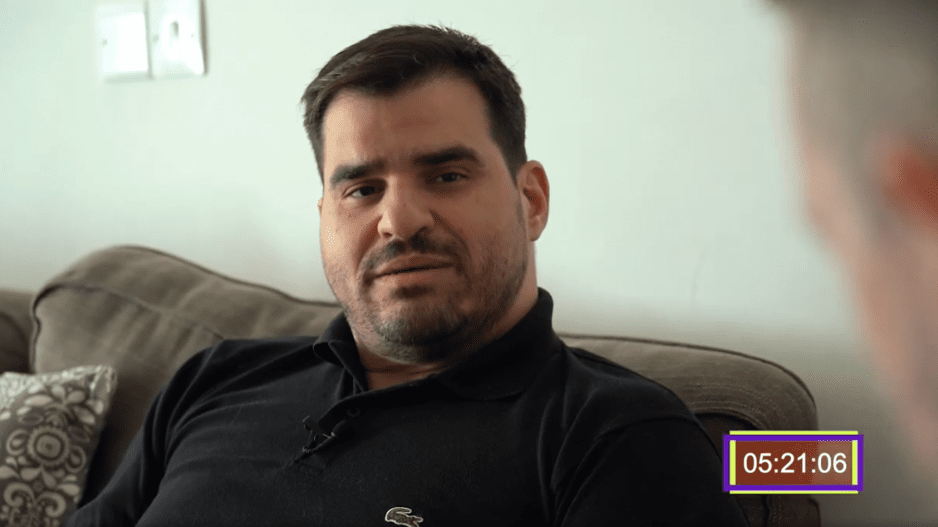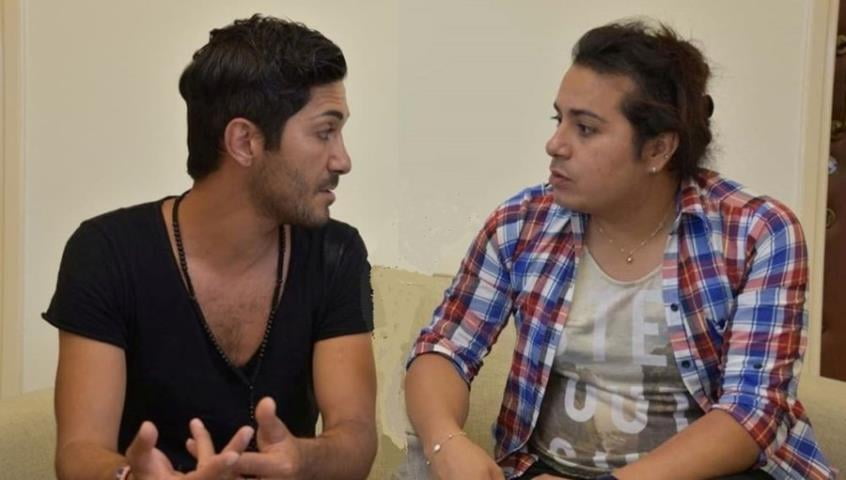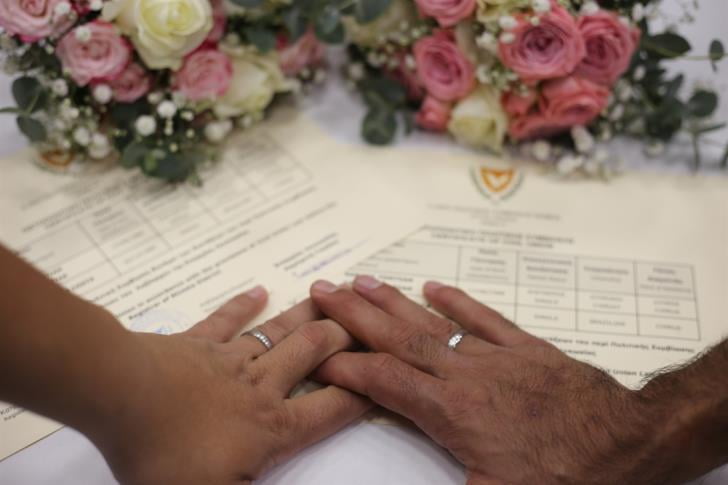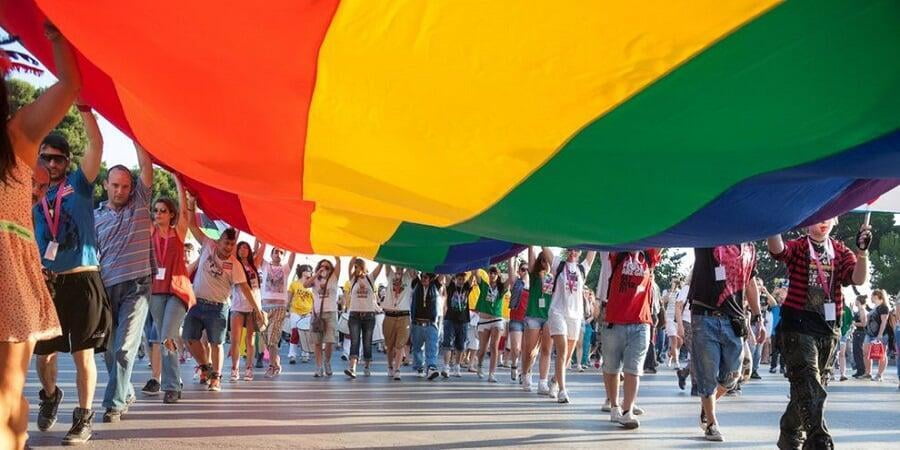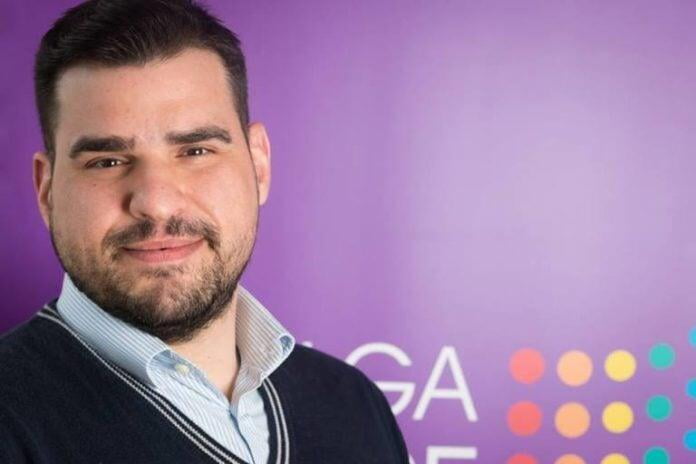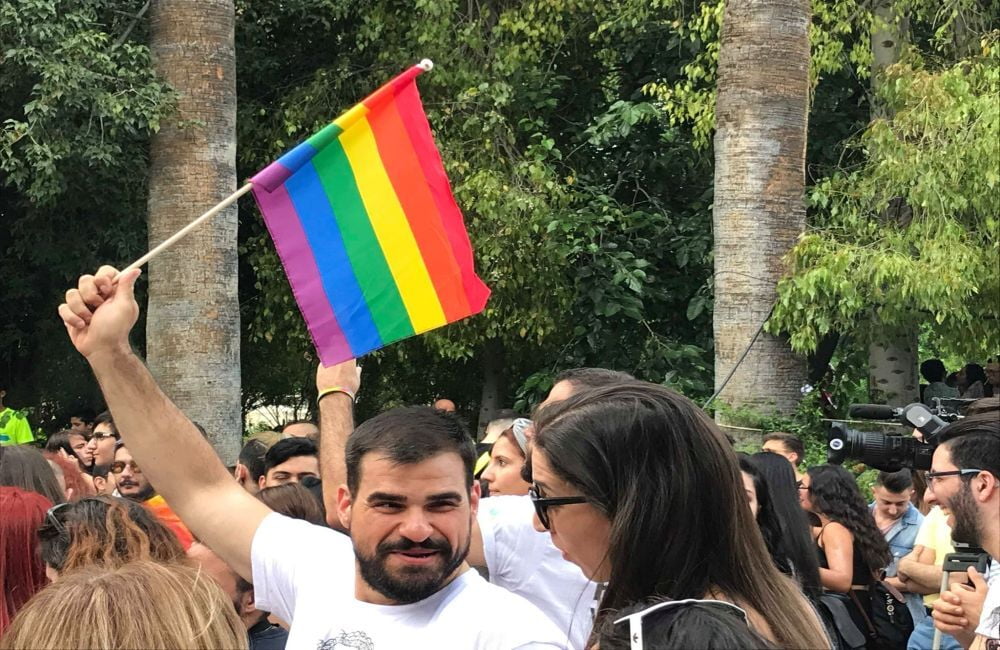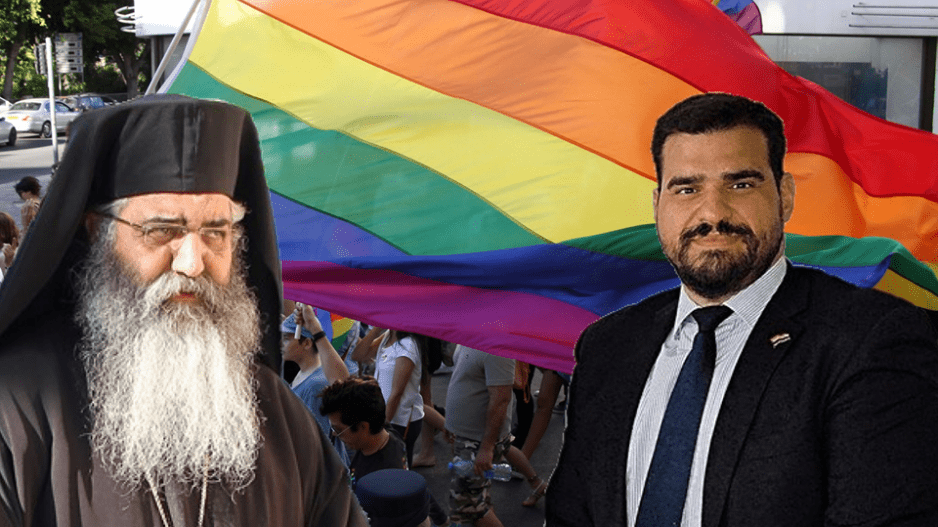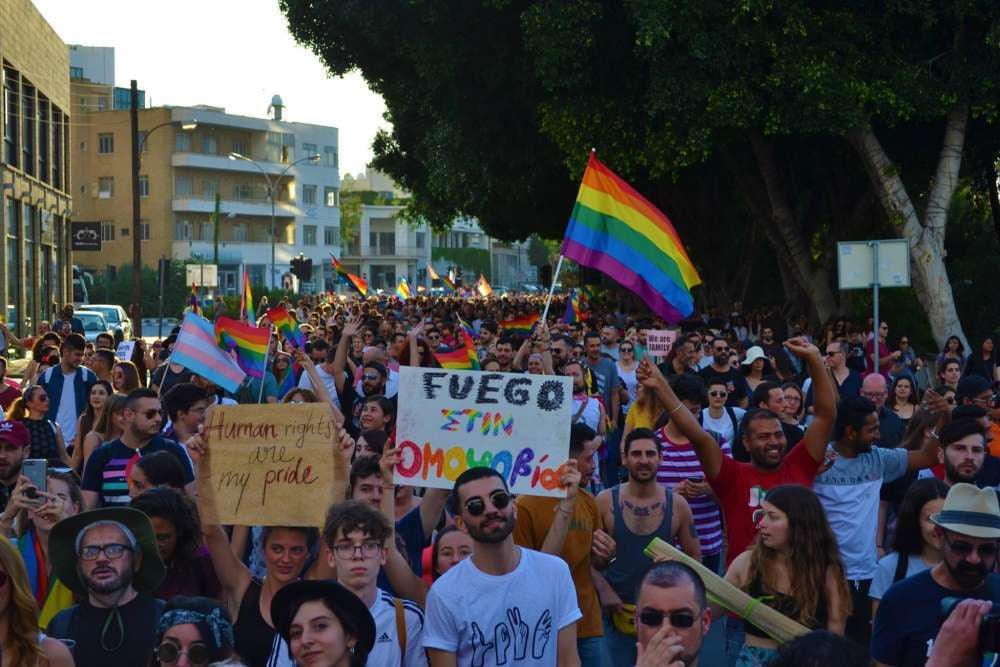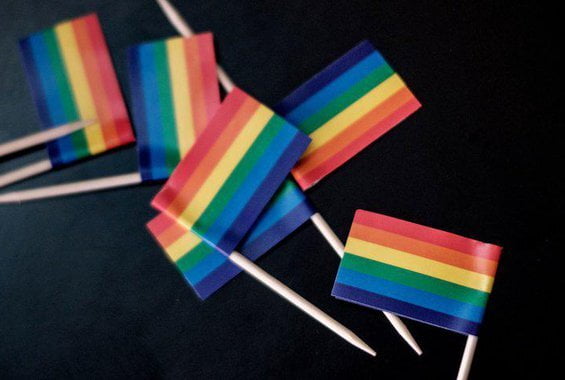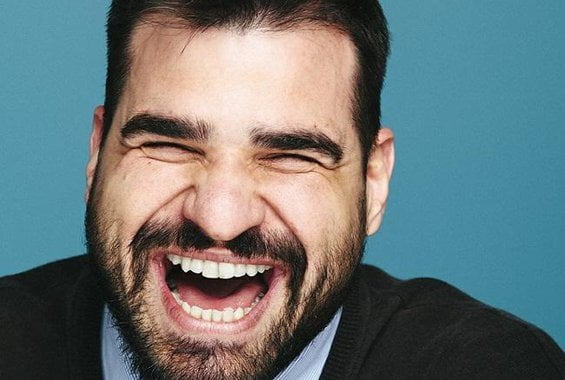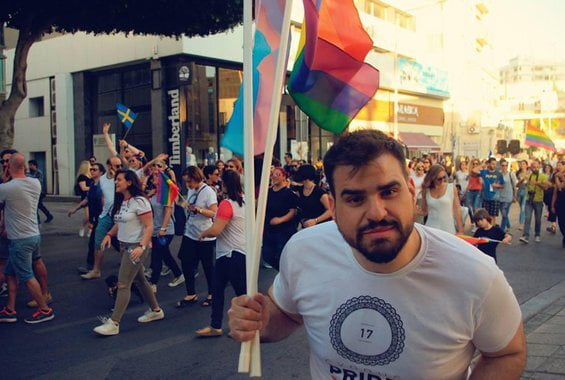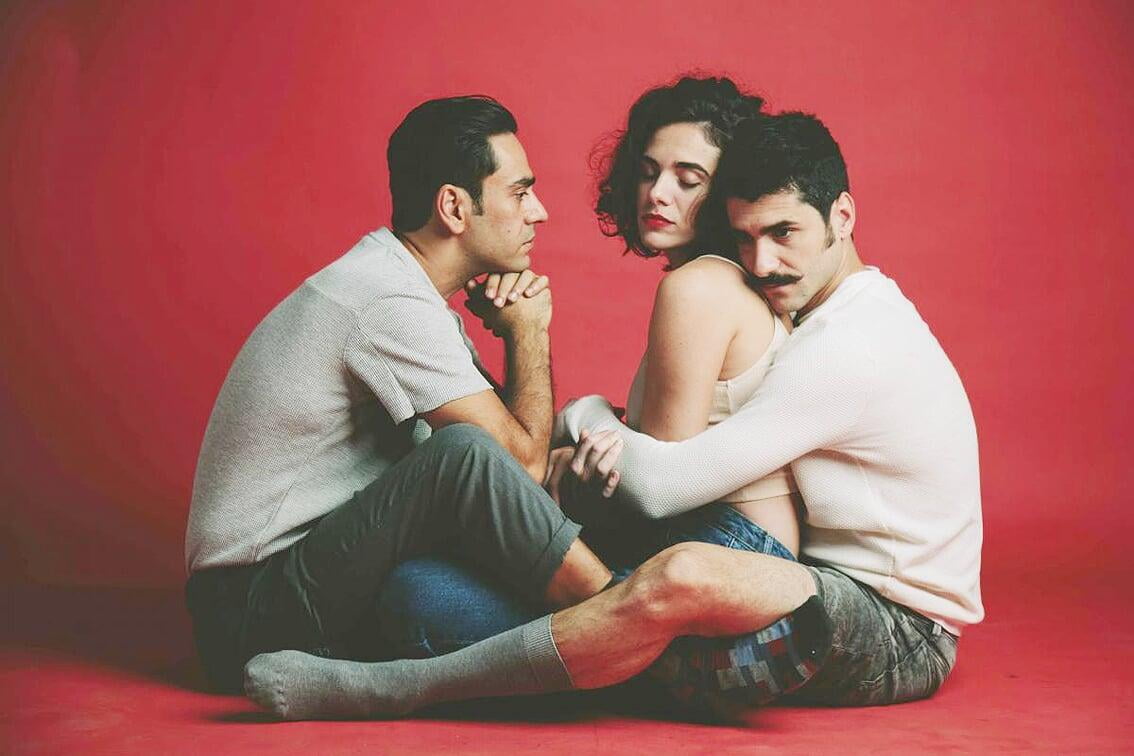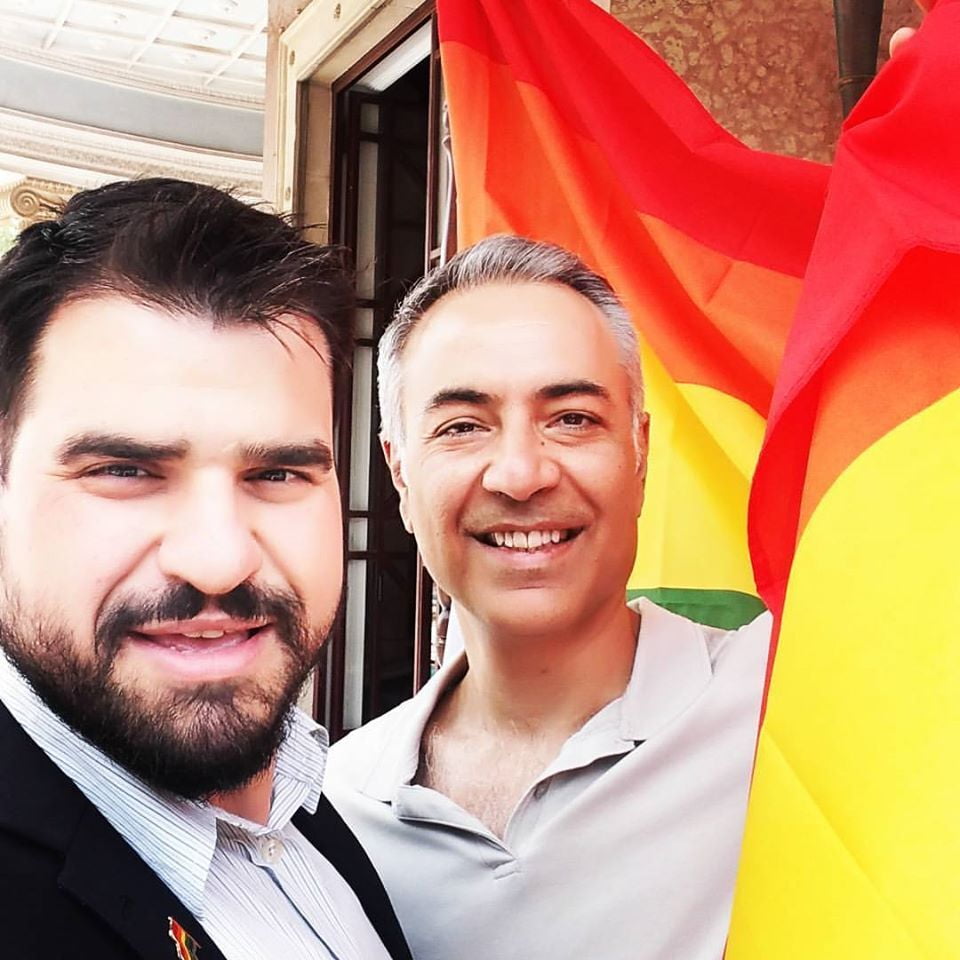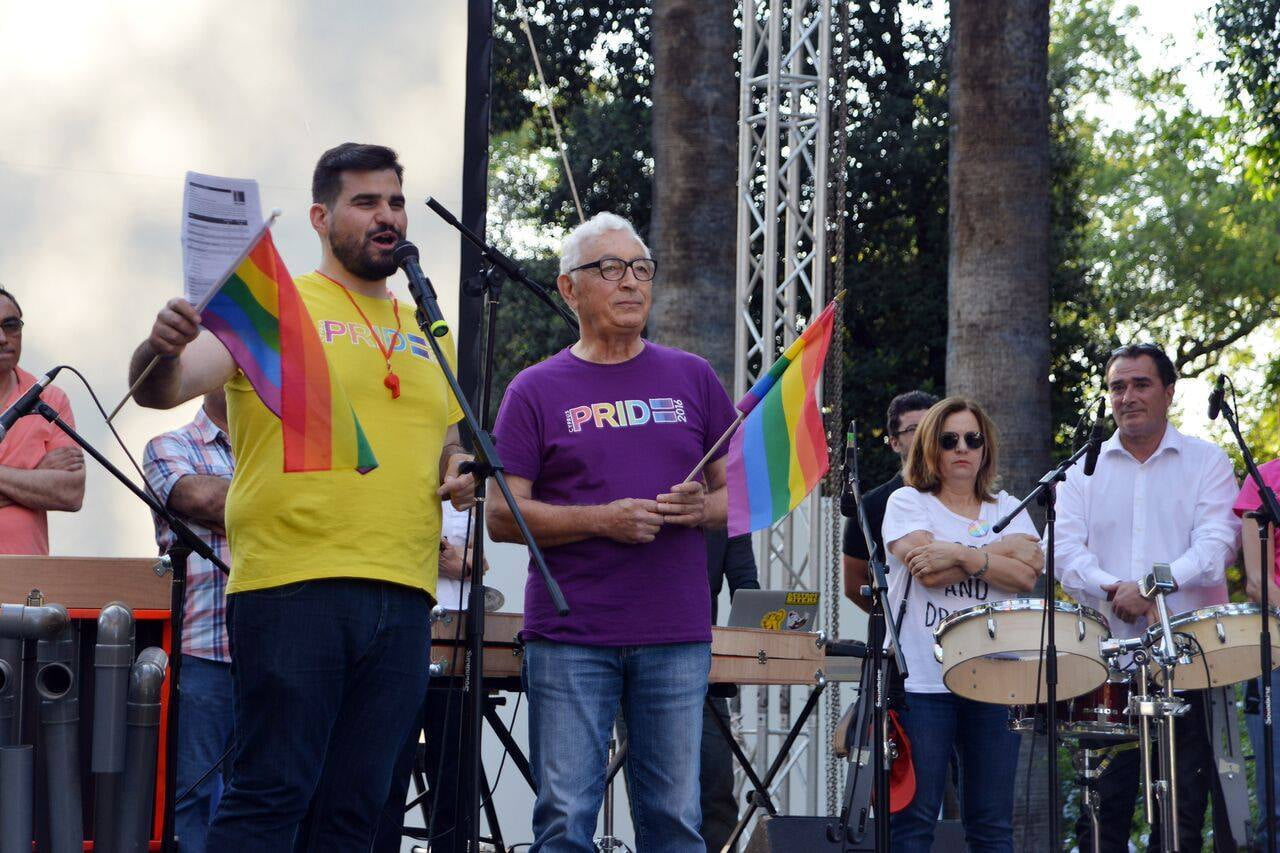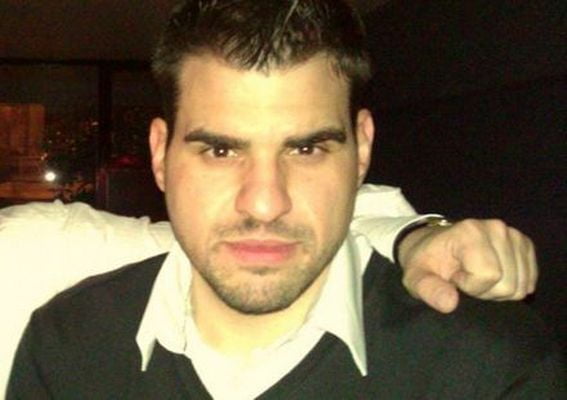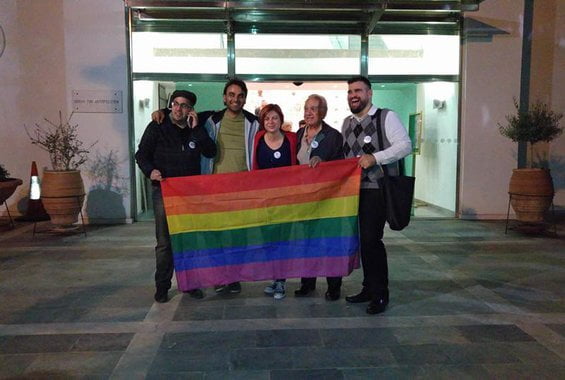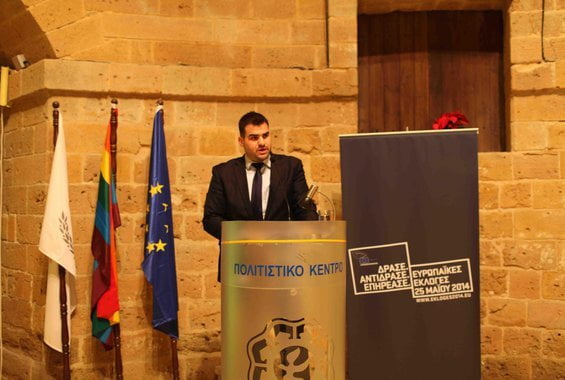By Giorgos Pavlidis / pavlidescy@gmail.com
Going out in public to defend a minority that, in the eyes of the conservative establishment, is a part of society, takes a lot of courage and enormous reserves of power. And it seems that the re-elected president of the LGBT community of Cyprus has both.
The Costa Gavrielides born in 1977 in Athens, he came of age in Cyprus, but immediately after his service in the army, apparently not withstanding the pressure he was experiencing, he left for London. There he lived a whole decade to finally return to Cyprus in 2008, where together with a small group of groundbreaking volunteers organized the homosexual movement of Cyprus. In its six years of life, accept has achieved all the other similar Movements in Europe that have taken decades to succeed.
In the interview we had with the President of ACCEPT we consciously chose not to repeat the words. On the contrary, considering some facts, we have focused our attention on the future objectives set by the Organization, on the homophobic climate in education, as well as on the psychological and other support that adolescents with different sexual orientations need...
In recent times, the LGBT community may have won a number of victories, but let's not be fooled, people with different sexual orientations are still cornered...
C.C.: The most difficult period for a gay person is that of adolescence, when faced with the guilt that torments him. It is the period when he realizes that his body behaves differently, but is not yet able to realize exactly what is going on with him. Many choose to go against their nature and follow what is considered "normal." Others feel guilty on religious grounds. Even today you see young people who are constantly struggling with the guilt caused by religion, or their families who adopt religious doctrine consider homosexuality an anomaly. It is especially important for a gay person to realize as early as possible that sexual orientation should not define their life, that it is just a part of the whole...
- But this presupposes that on the one hand the homosexual person accepts himself and on the other that society accepts him as he is...
C.C.: Both are hard to do. That's probably why many people go abroad. That's what I did. I went to study in London and stayed there for a decade. In fact, when I was leaving, I had in mind never to come back... So fleeing abroad is a way out. But there are also people who don't have the ability, or don't want to stay... People with different orientations must choose whether to reconcile with their specificity without being ashamed of who they are, or whether they will choose to hide by oppressing themselves. The pleasing thing is that in recent years more and more gay people are taking the liberty and communicating their particularity to the family, or in their close friendly circle, people who choose to make a fresh start ...
- In the past, homosexual people were treated in a savage, inhuman way. Today the picture has changed?
K.C: First of all, I think it is very important that the State, by mouth of Mp Pambou Papageorgiou, found the courage and apologized for the way in which gay people have been treated for decades. It is true that in recent years the number of cases of violence has been reduced. The dialogue that developed within society on the occasion of pride parades and the Covenant of cohabitation has helped many people to realise that gay people are not "a society", not the "shame of the family". At the same time, however, there are still many citizens, as well as families, who have not changed their minds. There is ignorance and prejudice. After you imagine there are still people who consider homosexuality a disease, a sin. The surveys also record high rates of homophobia, verbal violence and curling....
- How does ACCEPT help make the image better?
K.C.: As an LGBT organization we try and I think we manage to find allies within society itself. For example, when it comes to young people, we have an ally in the Agency and the Youth Council, when it comes to domestic violence issues, we have the Commissioner on our side to combat domestic violence. In addition, I would like to mention that for the past year we have been operating the parent group, which aims to provide psychological support to families who come to us. I point out the difficulties a family faces when it becomes known that one of its members has a different sexual orientation. Parents find it difficult to accept reality, often causing problems for their children. ACCEPT is also trying to offer support to non-Greek-speaking members of the organization, to people from the Turkish Cypriot community, while lately we have been trying to help transsexual people who are even more isolated and marginalized by society. Imagine that transgender people can't change the elements in their political identity even after gender reassignment surgery... In this respect, our legislation has huge gaps and deficits.
- In recent years the need to accept the different and the cultivation of anti-racist culture among children is an educational goal. To what extent does this campaign also touch homosexuality?
C.C.: On the part of the Ministry of Education, although there is a perception of the issue of homosexuality, no steps have been taken towards enlightening teachers and addressing cases of homophobia seen in school. Not a single circular has been issued, no material has been distributed, the subject has not even been raised for discussion!
Since 2012 there has been and is an initiative aimed at creating a shield against homophobia, but teachers are involved in this effort on a purely voluntary basis. In 2013 the courses of the initiative were attended by around 120 teachers, but as we found they were eminently people who were aware of the subject anyway. The big problem is those teachers who, either because of ignorance or because they are attached to perceptions of the past, refuse to discuss the whole thing. For example, they refuse to open a dialogue with children on the issue of homophobia, because they fear that such an action will confront them with parents. From the point of view of several teachers, mainly because of ignorance, there is a homophobic discourse based on racist stereotypes that, among other things, preserves and reinforces the guilt faced by children with different sexual orientations. For example, the way gender segregation is done causes problems: "as a boy you can't behave like that, or as a girl you have to do one or the other...". Unwittingly teachers become the cause of a problem among children, even where there is no reason.
- As ACCEPT have you been invited to talk to children in schools?
C.C.: Autonomously not, but we have been invited through the Office of the Commissioner for Administration in the context of the dialogue on diversity issues. For example, I was recently invited to speak at a school in Nicosia. In the early stages the children greeted me with laughter and a cheer of derision. But along the way they showed interest, they were puzzled and at the end of the debate I think they began to revise any stereotypes that had begun to be created in their minds. On the contrary, the most controversial (aggressive) questions came from the Professors...
- So maybe attention should turn to teachereducation?
C.C.: I guess so. I repeat that most teachers create homophobic standards mainly because of ignorance. But the impact of this behaviour on children, primarily those with different sexual orientations, is crucial. These children lose their self-confidence and self-respect, closing in on themselves, so their sexual orientation affects their subsequent professional steps, their social behavior, their formation as personalities... Of course there are also teachers - mainly theologians or priestly teachers, who, by expressing positions and opinions against homosexuality, consciously choose to cultivate homophobic syndromes in children. I believe that in these cases the Ministry should intervene, even more so that homophobic speech is now illegal!
- 2015 was an important year for your Organization. The adoption by the State of the Cohabitation Pact, as well as the criminalisation of homophobic speech, as well as the whole debate that has taken place around these issues, has changed the data so far to a remarkable extent. What are the next objectives of ACCEPT?
C.C.: From the day after Tuesday, 5 of the General, the Law on the Covenant of Cohabitation is implemented. So from this week the Home Office will be able to issue permits. Of course, we should not overlook the fact that several same-sex couples have married abroad. The State of Cyprus now recognises by law this relationship
As far as our objectives are concerned, we want and will seek to see changes in the field of education. We believe that the Ministry should take some steps forward. It is important to start a dialogue on the issues of homophobia and sexual orientation within schools.
As an organisation we aim to improve on the basis of European standards
of the image that exists within society for transsexual people. This category, as I have pointed out above, is perhaps in the most difficult position since, among other things, it is also legally unfounded. I would remind you that there are also the judgments of the European Court of Justice with which the State must comply.
We also want parents to come together with the organization and with their decisive contribution to help enlighten families, society to change the negative image that exists within society of people with different sexual orientations.
Finally, we hope that SOON ACCEPT will finally be able to acquire its own space.
- Is the right to childbearing an objective?
C.C.: We think it is very important for a society to eliminate all kinds of discrimination. This also touches on the issues of procreation. Either way, the issue of the rights of same-sex children is there and this is not related to the cohabitation pact. I'm just saying that more than 20% of lgbt community members are parents. No one can ban an LGBT person from procreating. The prohibition of child bearing essentially affects the children themselves, the guarantee of their rights vis-à-vis both parents, which is unacceptable. So we're dealing with a reality that the state has to recognize.
